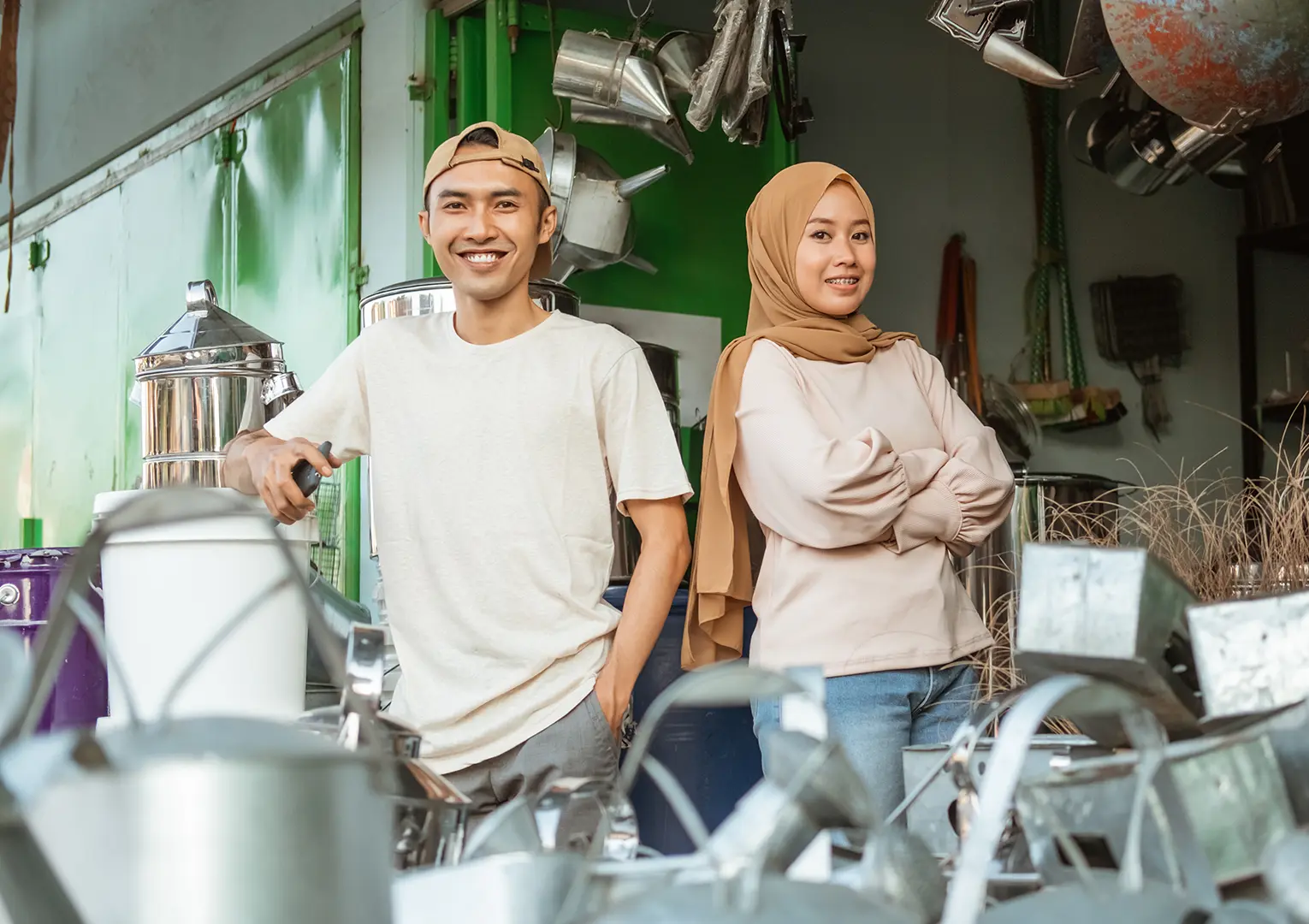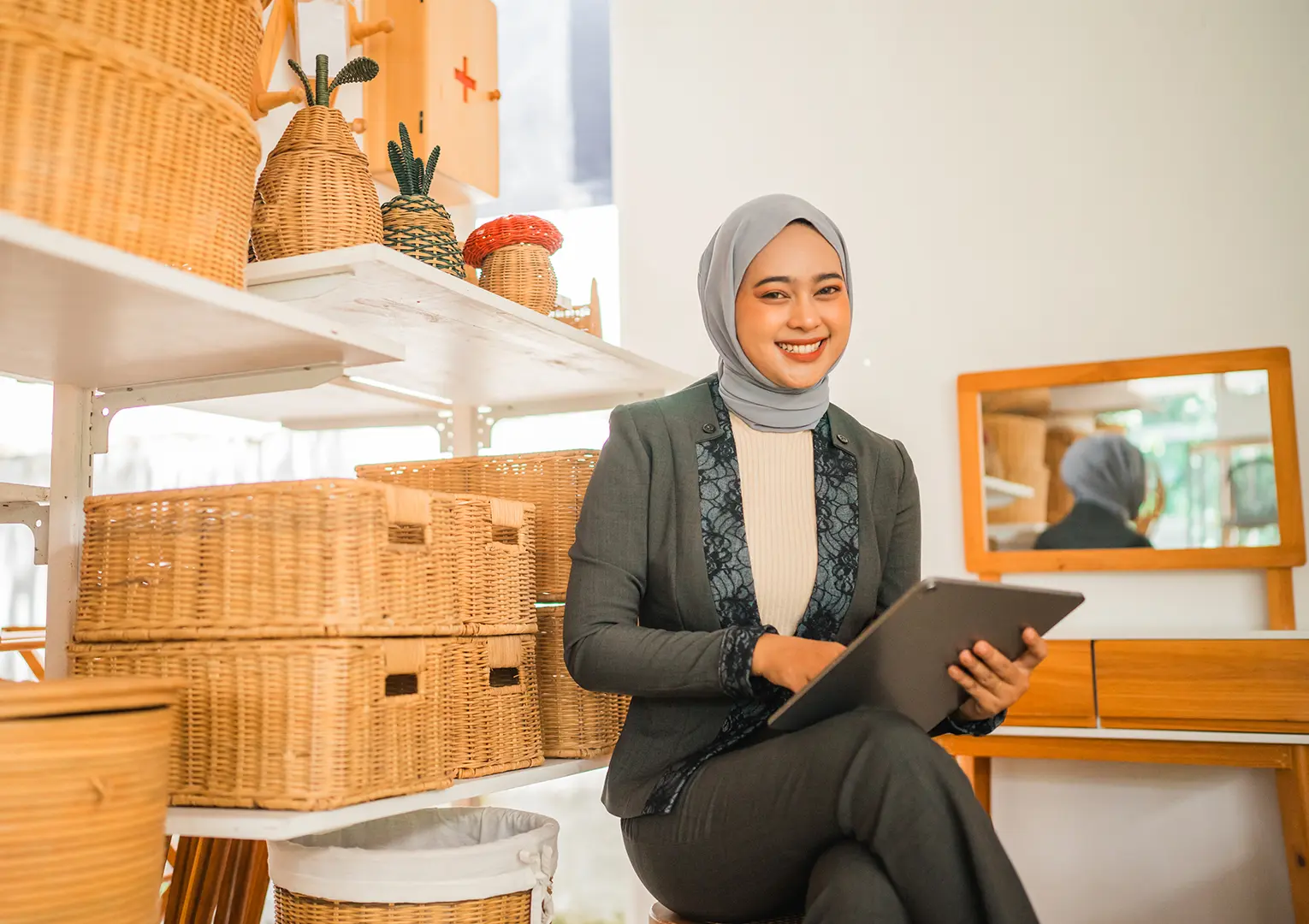MSMEs are the Backbone of Indonesia's Economy: Here Are the Types and Examples
February 20, 2025
Share This Article

MSME stands for Micro, Small, and Medium Enterprises. Although not large-scale businesses, MSMEs make a significant contribution to Indonesia's economy. In fact, the existence of MSMEs also drives economic growth.
Given the importance of MSMEs, the government has instructed the Department of Cooperatives and MSMEs in each district/city to provide guidance and support to all MSMEs.
For those of you who currently own a business, can it already be categorized as an MSME? Also, are there different types of MSMEs? Here’s the complete information.
Definition of MSMEs
As the name suggests, MSMEs are a type of business operated on a small to medium scale.
Therefore, branch companies, subsidiaries, or companies that are part of large-scale businesses cannot be referred to as MSMEs.
Legal Basis and Criteria for MSMEs
On the Mekar Klik Pajak blog, it is explained that the legal basis for MSMEs is regulated under the provisions regarding Micro, Small, and Medium Enterprises, namely Law No. 20 of 2008.
As for the criteria and qualifications of MSMEs, they are regulated in Law No. 9 of 1995, which contains the following:
The business is owned by an Indonesian citizen (WNI) and is an individual entity, not a branch or subsidiary of another entity that is controlled, owned, or affiliated with a large or medium-sized business, whether directly or indirectly
The maximum net assets of the business are Rp200 million, excluding the building and land used as the business location.
The maximum annual business revenue is around Rp1 billion.
The business does not have a legal entity or any other institution equivalent to a legal entity, including cooperatives.
Also read: The Long-Term Impact of 12% VAT, Will It Burden MSMEs?
The Difference Between MSMEs and SMEs
MSMEs and SMEs can be said to be similar but not the same. What is the difference between the two?
First, it’s about scope. As the name suggests, MSMEs (Usaha Kecil dan Menengah) cover small and medium-sized business units. Meanwhile, SMEs (Usaha Mikro, Kecil, dan Menengah), which stands for Micro, Small, and Medium Enterprises, focus more on micro-scale business units.
Second, the difference lies in the guidance and empowerment regulated in Law No. 23 of 2014 concerning Regional Governments.
The law states that micro enterprises are guided by districts and cities, small enterprises are managed by provinces, and medium-sized enterprises are directly guided by the central government on a national scale.
Another difference lies in the legal aspect. According to the regulations, micro-scale businesses do not require a legal entity, while small and medium-scale businesses are required to have a legal entity.
Types of MSMEs
According to Law No. 20 of 2008, MSMEs in Indonesia are classified into three types, as follows:
1. Micro Enterprises
The main requirement for a micro enterprise is that it is individually owned and has a maximum asset value of Rp50 million. However, the land and building used for the business are not counted as part of the assets.
Additionally, a business is classified as micro if it has a maximum annual revenue of Rp300 million, not exceeding this amount.
2. Small Enterprises
This type of business must stand independently and not be a branch or subsidiary of a medium or large enterprise.
Apart from having assets ranging from Rp50 million to Rp500 million (excluding land and buildings), its maximum annual revenue should be between Rp300 million and Rp2.5 billion.
3. Medium Enterprises
This is a type of business owned by an individual or a private business entity, meaning it is not a subsidiary or branch of another company.
The total assets owned must be valued between Rp500 million and Rp10 billion, and annual sales should range from Rp2.5 billion to Rp50 billion.
Examples of MSMEs in Indonesia
There are many examples of MSMEs. Below are some of the most common examples found in the Indonesian business world.
1. Agribusiness MSMEs
Examples include cattle or goat farming, chicken egg farming, organic crop and vegetable cultivation, and selling plant seeds.
These are actually basic needs required by society daily. However, unfortunately, agribusiness MSMEs are still dominated by older individuals, making it difficult to compete.
2. Fashion MSMEs
This type of MSME is a business that constantly transforms with the times. The reason is that fashion continues to innovate, so fashion MSME players must keep up with trending styles.
3. Cleaning Service MSMEs
Nowadays, more and more MSMEs in the cleaning service sector are emerging. Examples include laundry services, house cleaning, and furniture cleaning. This type of MSME has emerged as a solution for busy workers who don’t have time for household chores.
4. Culinary MSMEs
This is the most popular type of MSME in Indonesia. It’s no surprise, given the vast business opportunities as long as humans still need food.
Moreover, the capital required to start a culinary MSME doesn’t need to be large, as long as the taste and price are competitive.
5. Education and Training MSMEs
Whether online or offline, businesses in the education sector are still quite promising. One reason is that education is needed by all groups, from children to office workers.
6. Creative Product MSMEs
As the name suggests, the selling point of this MSME lies in the creativity of the products produced. There are many variations of this MSME, such as accessories, household tools, and much more.
If the products are highly creative and not widely produced, it’s not impossible to sell them abroad.
7. Technology & Internet MSMEs
Almost all aspects of life require technology and the internet. This makes MSMEs in this sector quite promising.
For example, mobile phone sales businesses. As long as humans continue to communicate using smartphones, this will remain a primary necessity for all groups.
8. Tour & Travel MSMEs
Tourism in Indonesia never dies. No matter which city you live in, you can start a tour and travel MSME because almost every region in Indonesia has tourist destinations.
The scope of the business ranges from tour guide services to accommodations, such as transportation and lodging.
Also read: Labamu: The Best Cashier App Chosen by MSME Entrepreneurs
That is the explanation about MSMEs in Indonesia. If the business you own falls into one of the MSME categories, it means you are one of the backbones of Indonesia's economy.
To make your business even more successful, use the right application to support business operations, such as Labamu. Designed with various advanced features, this app is ready to support the growth of every business.
Some great features you can use include QR Menu, which makes it easier for customers to place orders and make payments, and Order Management, which speeds up and improves the accuracy of the ordering process, thereby increasing customer satisfaction. Features like Reports, Invoices, and Debt Book also make financial management easier for your business.
For MSME entrepreneurs who want their businesses to grow, come on, download Labamu now on Google Play or the App Store and experience the benefits firsthand!







